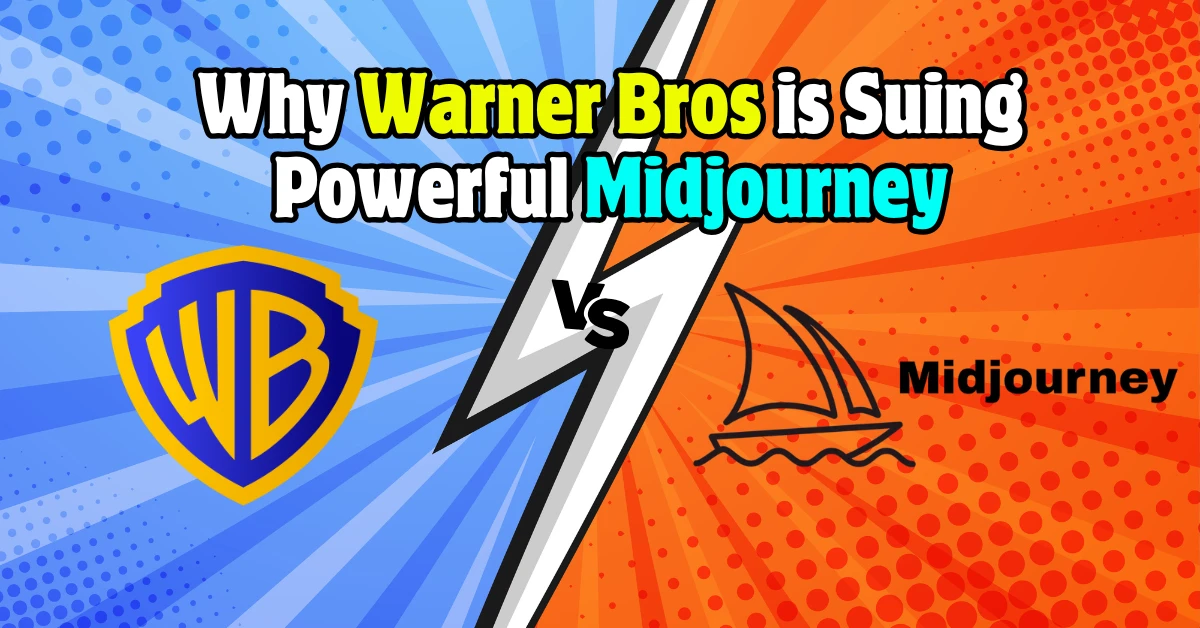Table of Contents
Why Warner Bros is Suing Powerful Midjourney: Warner Bros. filed a lawsuit against Midjourney this Thursday, marking the third major studio to challenge the AI image-creation service for alleged copyright infringement.
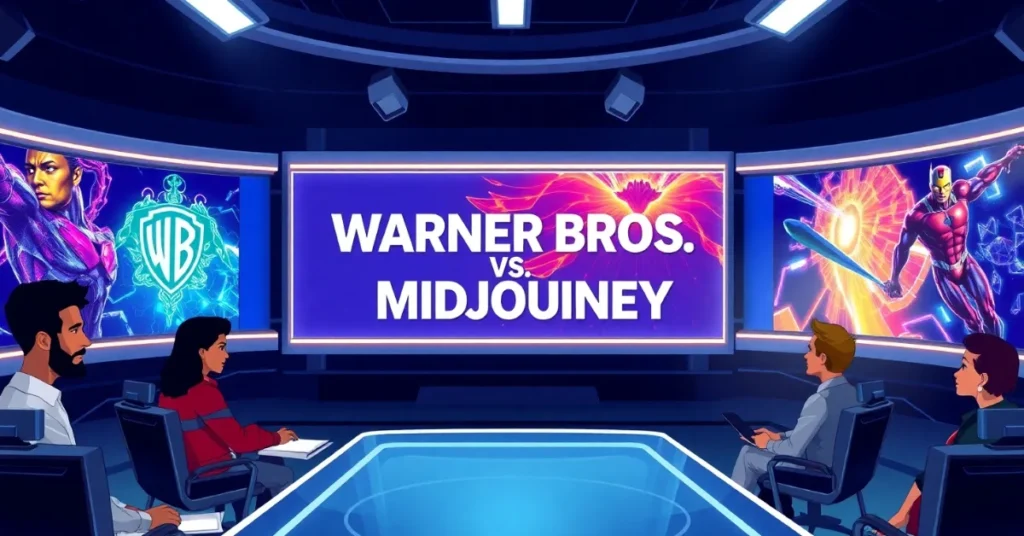
Hollywood vs. AI: Warner Bros. Joins Disney & Universal in Midjourney Copyright Showdown
The legal filing claims that Midjourney deliberately produces both static images and videos featuring Warner Bros. characters, such as Superman, Batman, Bugs Bunny, Daffy Duck, and Tom and Jerry. The suit further contends that Midjourney recently removed protective measures that previously prevented users from generating videos that violate the studio’s intellectual property rights. Why Warner Bros is Suing Powerful Midjourney
“Midjourney thinks it is above the law,” the legal document declares. “Without any consent or authorization by Warner Bros. Discovery, Midjourney brazenly dispenses Warner Bros. Discovery’s intellectual property as if it were its own.”
The same legal team representing Disney and Universal in their June lawsuit against Midjourney is now handling Warner Bros.’ case, with the new filing following an identical structure.
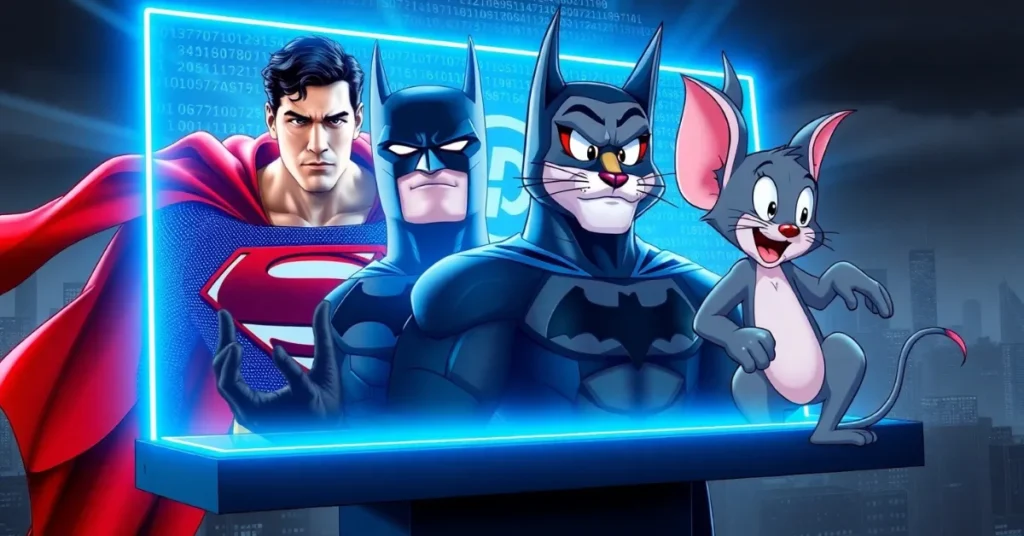
From Superman to Scooby-Doo: Studios Claim Midjourney Floods Internet With Pirated Characters
Both legal actions contend that Midjourney users are producing unauthorized content — visual materials and videos that bear striking similarities to protected characters. The lawsuits maintain that Midjourney could continue operating its platform while implementing safeguards to prevent such copying. Why Warner Bros is Suing Powerful Midjourney
“But Midjourney has made a calculated and profit-driven decision to offer zero protection for copyright owners even though Midjourney knows about the breathtaking scope of its piracy and copyright infringement,” Warner Bros.’ legal filing asserts.
In response to the Disney-Universal litigation, Midjourney has maintained that using copyrighted material for AI training falls under “fair use” protections. The company has also pointed to its terms of service, which require users to respect intellectual property rights.
Midjourney’s legal representatives have countered by calling the studios hypocritical, claiming they want to restrict “industry standard” AI methods while simultaneously seeking to benefit from artificial intelligence technology.
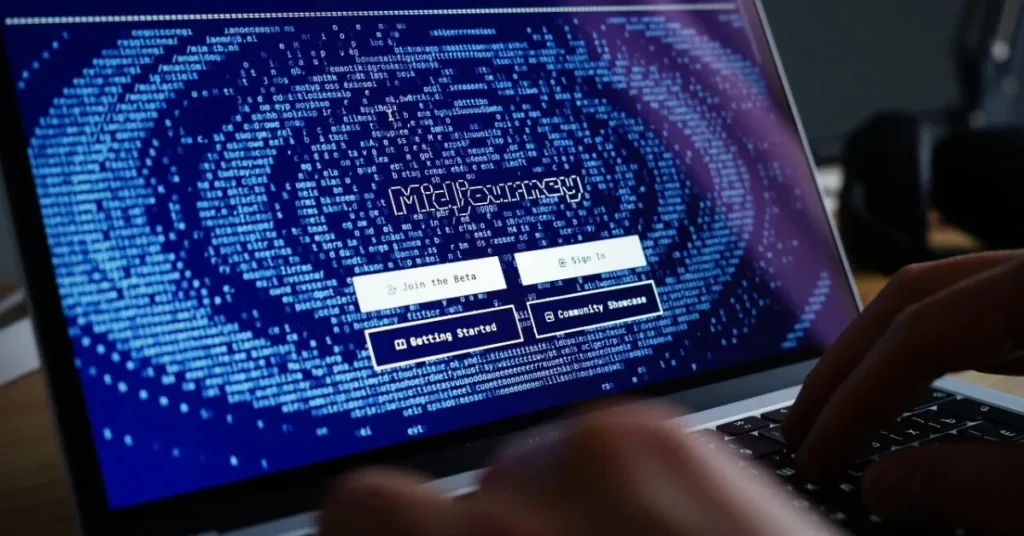
AI on Trial: Could Warner Bros. Lawsuit Decide the Future of Creative Copyright in the Digital Age?
Warner Bros. received an invitation earlier this year to participate in the Disney-Universal case but declined to join at that time.
Since then, Midjourney has launched its video capabilities and established a continuous streaming channel on both its website and YouTube — creating what could be perceived as increased competition for traditional studios. The platform’s discussions about adding “channels” to its live broadcasts indicate a possible “intent to expand into the traditional television or streaming markets,” according to the lawsuit.
The complaint demonstrates that users can readily instruct the platform to create unauthorized images and videos of characters like the Joker, Flash, Scooby-Doo, and numerous other protected properties.
Warner Bros. is pursuing both monetary damages and a court order that would prevent Midjourney from continuing to violate the studio’s copyrights.
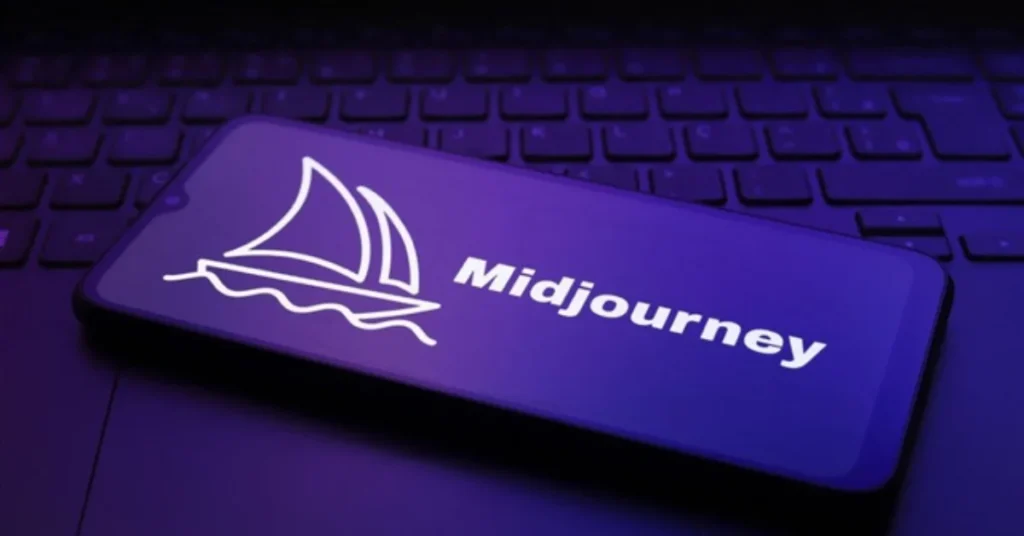
Frequently Asked Questions (FAQs) About Why Warner Bros is Suing Powerful Midjourney
Why did Warner Bros. sue Midjourney?
Warner Bros. filed the lawsuit claiming Midjourney enables users to generate images and videos featuring its copyrighted characters—like Superman, Batman, and Scooby-Doo—without authorization.
How is this lawsuit connected to Disney and Universal’s legal battle?
The same legal team representing Disney and Universal against Midjourney is now handling Warner Bros.’ case. All three studios argue that Midjourney ignores copyright safeguards.
What does Warner Bros. want from the lawsuit?
Warner Bros. is seeking both financial damages and a court order that would stop Midjourney from producing or distributing unauthorized content featuring its characters.
What is Midjourney’s defense against these claims?
Midjourney argues that using copyrighted material in AI training qualifies as “fair use” under U.S. law. They also point to their terms of service requiring users to respect copyrights.
Why is this case important for the future of AI and copyright?
The lawsuit could set a major legal precedent for how AI companies handle copyrighted content, potentially shaping the future of creative industries and AI-generated media. Why Warner Bros is Suing Powerful Midjourney
